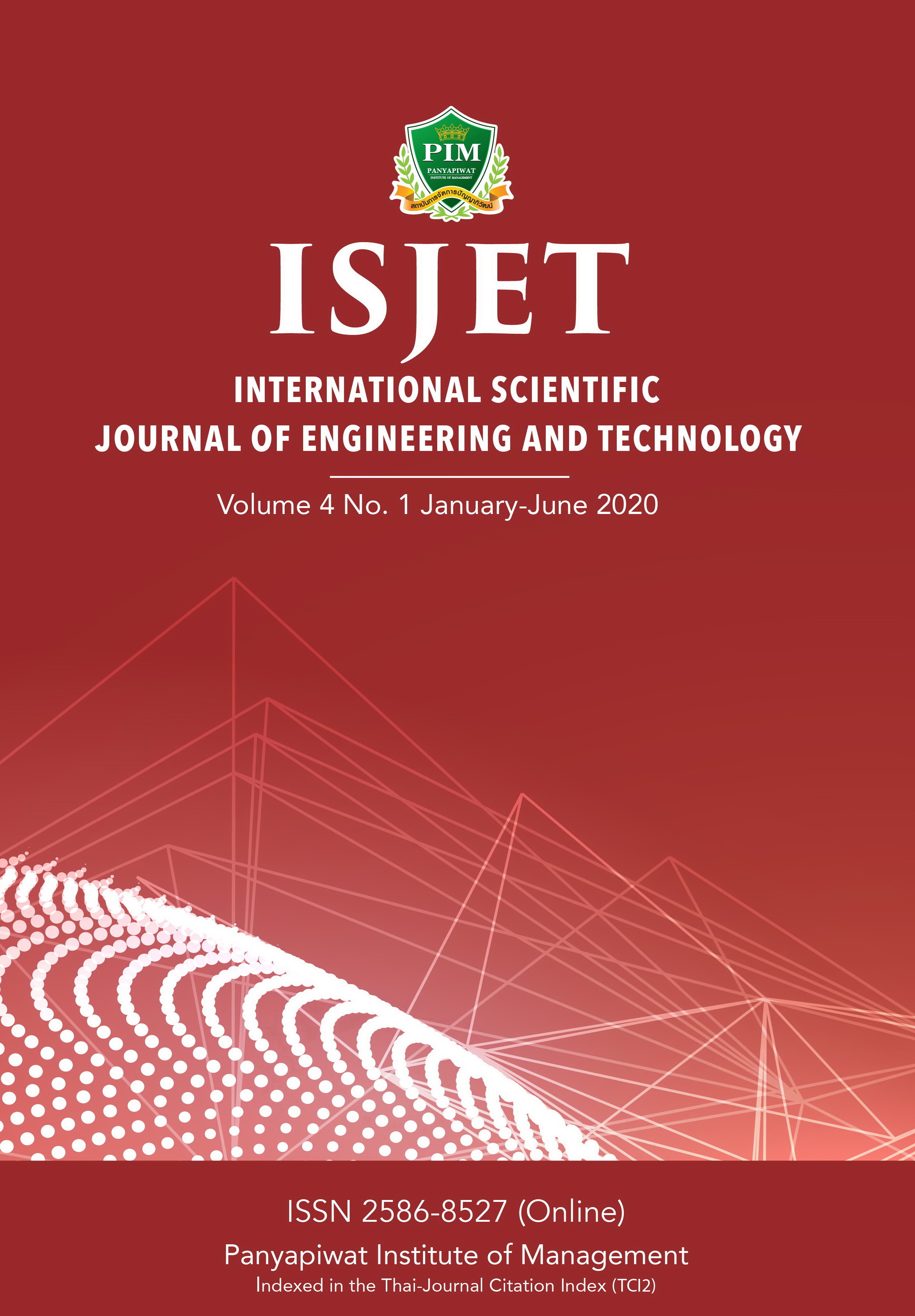Global Problem-Based Learning with the Collaboration of Thai and Japanese Universities Companies Explaining the 3 - year Experience of our Kaizen PBL Program Development
Main Article Content
Abstract
Abstract—This paper is about a global problem-based learning (gPBL), called KAIZEN gPBL, developed by Panyapiwat Institute of Technology (PIM) and Shibaura Institute of Technology (SIT), in which program participants identify, analyze and discuss the problem, and to propose Kaizen ideas (= solutions) for the production line of the industrial chains (for tractors) in Thai local (or Japan-Thai) factories. This paper first explains the brief history and the contents of the program, and then describes its three types of uniqueness and contributions to the Japanese and Thai engineering education. The three types of uniqueness are: 1) the applicability of the program in which everyone (regardless of their age, gender, and work experience, etc.) can learn something new, 2) the excellent collaboration with universities. and companies in Japan and Thailand, and 3) providing the opportunity to see “real-world” problems.
Article Details
เนื้อหาข้อมูล
References
Toyota, (2020, February, 11). “Kaizen – Toyota Production System guide” [online]. Available: https://blog.toyota.co.uk/kaizen-toyota-production-system
GRIS Development Forum, “Introducing Kaizen in Africa,” GRIPS, pp. 1-11, Oct. 2009.
Japan Brand ODA, (2020, February, 11). Japan’s approach towards quality and productivity the driving force of Japan’s rapid growth. [online]. Available:
https://www.jica.go.jp/english/publications/brochures/c8h0vm0000avs7w2att/japan_brand_02.pdf
A. P. Brunet and S. New (2003). “Kaizen in Japan: an empirical study,” International Journal of Operations & Production Management. vol. 23, no. 12, pp. 1426-1446, Dec. 2003.
S. Zailani, M. R. SHaharudin, and B. Saw, “Impact of kaizen on firm’s competitive advantage in a Japanese owned company in Malaysia,” Int. J. Productivity and Quality Management, vol. 16, no. 2, pp. 183-210, Jan. 2015.
K. Jigyou, K. Kihon, and C. Gaiyou, “The 48th Basic Survey of Foreign Business” Ministry of Economy, Trade and Industry ,Tokyo 100-8901, July. 2017.
ICM, (2020, February,11). “Thai Metro Industry (1973) Co., Ltd. has more than 40 years of experience in manufacturing high quality roller chain under ICM™ brand.” [online]. Available: http://www.tmichain.com
BIRER (2020, February, 11). “Thai-German Boiler Manufacturing Limited.” [online]. Available: https://alzheimerfriesland.nl/2020-Jan-12/24173.html


